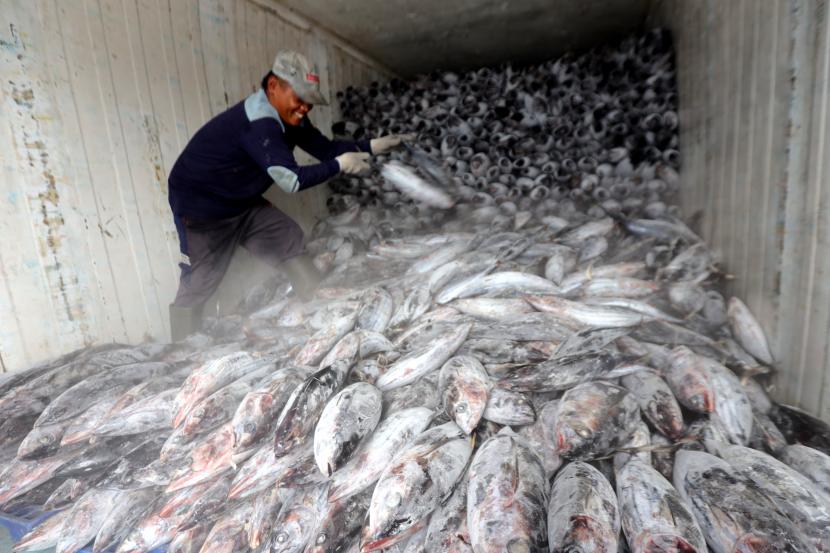REPUBLIKA.CO.ID, JAKARTA -- The Ministry of Marine and Fisheries (KKP) succeeded in increasing the catch quota of three types of tuna for Indonesia at the Indian Ocean Tuna Commission (IOTC) Session held in La Reunion, France from 7 to 17 April 2025. The Indonesian delegation led by the Expert Staff of the Minister for Economic, Social, and Cultural Affairs, Trian Yunanda, said the fishing quota for big eye tuna increased by 2,791 tons, to 21,396 tons for the period 2026—2028 and the skipjack tuna quota was set to 138 thousand tons.
Trian said the adjustment of yellowfin tuna quotas had been agreed to 45,426 tonnes for 2025. Trian reiterated the CCP's commitment to championing the national interest at the IOTC forum and other series of supporting technical meetings.
“We managed to manage various strategic issues ranging from increasing tuna catch quotas, use of observers, protection of fishing crews, to strengthening coastal States Alliance/CSA cooperation,” Trian said in a written statement in Jakarta, Sunday (20/4/2025).
Trian said Indonesia also succeeded in pushing for the exclusion of the use of national observers in transshipment activities by tuna trawlers. This is a real manifestation of adaptive and solutive fisheries diplomacy, including 14 important proposals that were successfully adopted including Indonesia's Proposal B on transhipment, as well as other relevant proposals such as shark conservation, and a vessel monitoring system (VMS). In the IOTC forum, Trian said, CSA member states such as Indonesia, Maldives, South Africa, Pakistan, and Sri Lanka demonstrated a significant role in policing the interests of coastal states.
“Consolidation of common positions has proven capable of strengthening the voice of developing countries in decision-making. Indonesia fully supports the initiative to formalize the Coastal States Alliance as a platform for collective diplomacy in the Indian Ocean region,” Trian said.
Trian said the Indonesian delegation also recommended the involvement of the fishing industry in the national observer program, as well as capacity building through cooperation with the IOTC ROP consortium for training and review of reports. The government will continue to refine reporting and monitoring systems as a form of commitment to international compliance.
Meanwhile, Director General of CCP Catch Fisheries, Lotharia Latif said that the IOTC forum became one of the important instruments in the sustainable governance of tuna fisheries in the Indian Ocean region. Latif said the CCP will continue to ensure the interests of fishermen, industry, and national fisheries resources are protected within a framework of fair and sustainable international cooperation.
“From the beginning, a team of Indonesian delegates has been set up to negotiate there and have received instructions from the Minister to continue to fight for the interests of Indonesian fisheries at the world level,” Latif said.
Latif said additional tuna catch quotas should be a driver for all parties to adhere to a more sustainable catching system. Latif said fishing must be measured, similarly boats and fishing gear must meet the standards of the rules on how to catch good and correct fish.
“Well-documented and clear reporting of fish accuracy and reporting must be observed. Thus, we are not considered to be perpetrators of illegal fishing, but instead contribute to preserving the ecology and sustainability of fish in the sea,” Latif said.
Earlier, Minister of Marine and Fisheries, Sakti Wahyu Trenggono, stressed the importance of maintaining the sustainability of marine ecosystems to support economic growth as well as social life of people. It has initiated economic programs to ensure that these ecological interests are safeguarded.


